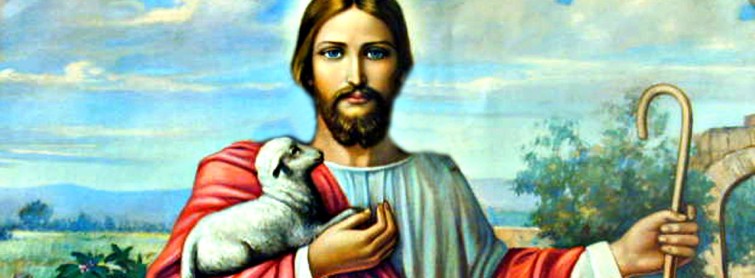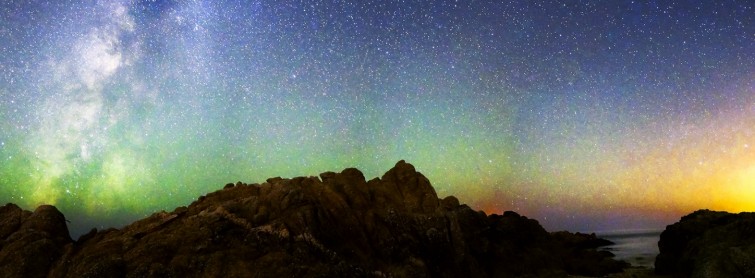What was God doing before creation? Our limited human minds have great difficulty making sense of God’s existence before the world was created, but the Bible does give us some hints about what took place before creation week.
Trinity
The Biblical account provides limited information about what took place before the creation of the world, but what it does make clear is that while God was alone before he created the earth, he was still the Triune God that we have come to know through the New Testament. John tells us that:
“In the beginning was the Word, and the Word was with God, and the Word was God. He was in the beginning with God. All things came into being through Him, and apart from Him nothing came into being that has come into being.” (1:1-3)
From this we know that Jesus existed with God from before the creation of the earth. In John, Jesus’ own words reveal the relationship that existed between the Father and the Son, before creation:
“And now, Father, glorify me in your presence with the glory I had with you before the world began.” (17:5)
Colossians confirms this when it writes that Jesus was present at the creation of the world:
“For in him all things were created: things in heaven and on earth, visible and invisible, whether thrones or powers or rulers or authorities; all things have been created through him and for him”
Titus also states that eternal life through Christ was “promised before the beginning of time.” (1:2)
Scripture also indicates that the Holy Spirit was present with God before creation. Genesis opens by telling us that:
“…the earth was formless and empty, darkness was over the surface of the deep, and the Spirit of God was hovering over the waters.”
Before the creation of the world, God existed in three distinct persons: Father, Son and Holy Spirit. God did not dwell alone before the beginning of time, but existed within his Trinitarian nature, completely satisfied by the perfection of himself. We know from passages such as Ephesians 1:4-5 that even before creation, the trinity had a redemptive plan for the human race:
“For he chose us in him before the creation of the world to be holy and blameless in his sight. In love he predestined us for adoption to sonship through Jesus Christ, in accordance with his pleasure and will“
John also discloses the loving relationship of the trinity before creation, when Jesus appeals to his father,
“…you loved me before the creation of the world.”
The trinity dwelt in perfect community before creation, existing in perfect love and unity: Father, Son and Holy Spirit.
Angels
While we know very little about what happened before the first day of creation, the Bible does tell us something about a major event which took place in heaven, before the creation of the earth – God created the angels.
Because scripture largely focuses on the history of the earth and humanity, we do not know exactly what day the angels were created but we know from Job that the angels were witnesses to the creation of the earth:
“…when I laid the foundation of the earth…the morning stars sang together and all the heavenly beings shouted for joy” (38:4-7)
This passage indicates that the creation of the angels must have preceded creation week. We also know that the amount created was large in number, making their creation a significant event. Passages such as Nehemiah 9:6 indicate that God created a multitude of angels before the creation of the earth and Hebrew states that the number of angels totals “thousands upon thousands” (12:22).
Time
God does not exist within time in the same way that we do. Because God is the creator of time, there was no space or time before creation. Time was not a reality, and had no meaning for the trinity. For this reason, there is no way to understand ‘what happened’ or ‘what God was doing’ before creation, as both the universe and time had not yet come into being. God has always existed, “from everlasting to everlasting,” (Psalm 90:2) so questions such as these are meaningless.
When we think of ‘before creation’, we do so in a way that resonates with us: with our understanding of time. However, time is a created entity, created on the first day of creation week. This means that time was meaningless before this, so we cannot ask questions of God’s existence in relation to time. God’s experience of time is very different to ours, so even if we could go back and see the existence of the triune God, or the existence of the angels prior to creation week, it would make little sense to us. Our experience of time is linear, so we see the time before creation as a set number of years. We try to picture ‘ before creation and imagine God sitting idly for a number of years. This is not an appropriate way to understand God’s activity before creation – God was not bound to time because it had not been brought about yet. God exists within timelessness, not within time.
God’s existence is also outside of the history of the universe, which is what we see in the Bible. History, for us, began at Genesis 1:1. Our finite minds cannot understand anything outside of our own history, but that’s exactly what God is – an existing person, outside the framework of history. Before this history began, there was simply eternity. There was no moment prior to the creation of the universe – time began at creation.
(To read more about God’s experience of time, read “Does God Exist Within Time?)





